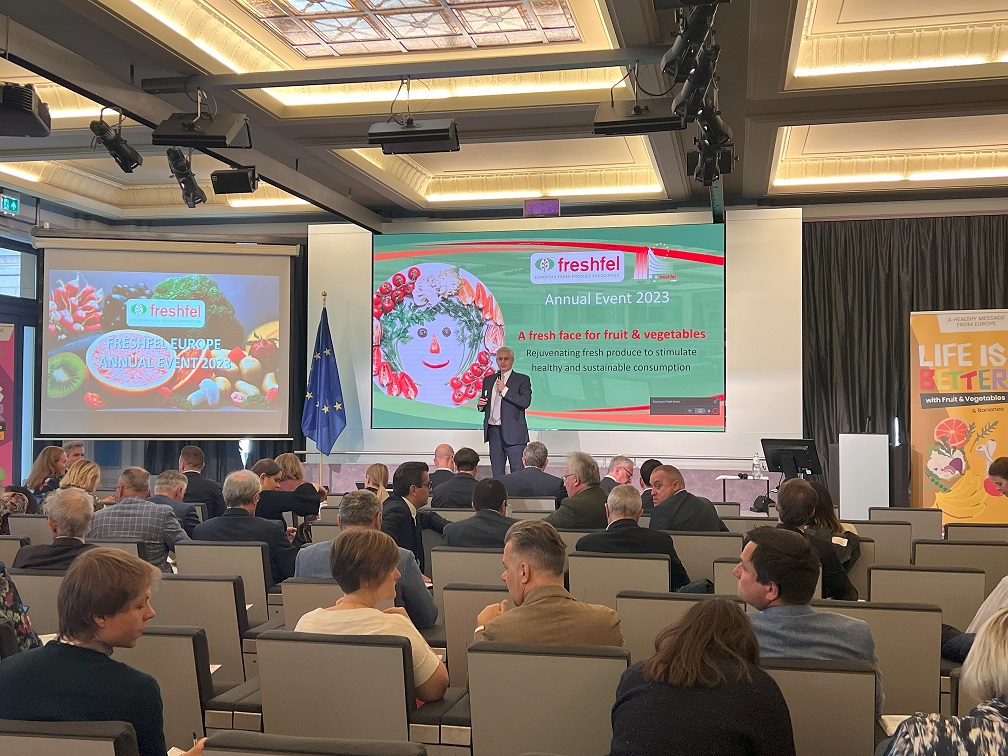Freshfel Europe’s Annual Event contests food inflation claims
Rejuvenating fresh produce to stimulate healthy & sustainable consumption and featured top-level speakers from the European Commission, WRAP UK, Trianon Scientific Consulting, Planet Tracker and the OECD. The fresh produce industry is facing several challenges relating to climate change, misleading negative public depictions of products, and a steadily decreasing consumption rate. This year’s annual event focused on how the sector will position itself at the forefront of sustainable change, promoting accountability and responsibility to accurately showcase the many assets and benefits of fresh fruits and vegetables, portraying a ‘fresh face’ and the true qualities of the products.
Salvo Laudani, President of Freshfel Europe, said: “We cannot continue to ignore this problem. Just a few years ago, during the pandemic, we were the heroes. Consumers knew we are a sustainable food alternative with high health benefits and low environmental impacts. Now, fruits and vegetables are more and more often being portrayed negatively, with misleading and untrue information on water use, quality and safety and affordability being disseminated in communication outlets.”
One of the most common current misconceptions is that fruits and vegetables have become unaffordable, with prices driven up by the high inflation rates of the last year. However, as emphasised by Laudani: “Estimations from Italy show that in 2022, monthly household expenditure increased by €446, out of which grocery expenditure accounted for €35 with 10% being attributed to fruits and vegetables. That means that the inflation on fruits and vegetables only led to an increased cost of €3.50 more per month, or 0.1 cents per day, for Italian households.”
Fresh produce is essential to the green transition and is central in European strategies such as the Green Deal, Farm to Fork, Fit for 55 and the EU Beating Cancer Plan. Speakers at the event highlighted the urgency to act now to reach these goals and stressed that although fruit and vegetables have the capacity and qualities of taking the lead in sustainability, there is still a lot more work to be done. Innovational efforts, new technologies and farming practices are still in their infancy, and greater attention must be paid to how to efficiently finance the efforts that need to be made for the sector to remain proactive.
While the meeting identified several areas where progress can be made, regulatory and financial hurdles remain. Philippe Binard, General Delegate of Freshfel Europe remarked: “Fruit and vegetables have a key role to play in the move towards a plant diet and sustainable food chains. Yet, policy changes are placing hurdles on the sector’s journey towards these objectives. Restrictions to the use of plant protection products, packaging, efficient labelling requirements and insufficient actions to stimulate innovation projects and consumption are impeding and delaying the move to fully sustainable fresh produce”.



